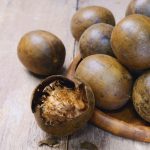Same as us, dogs go through the ageing process which particularly becomes apparent at the bones and joints that tend to wear out over time and start rubbing against each other. This is especially the case with breeds like German Shepherds, Rottweilers, Great Danes, New Foundlands, Saint Bernards, Mastiffs, Labs and Dachshunds which are more susceptible to these issues. In addition, dogs that are diabetic, arthritic, or have suffered some trauma are also at risk.
If you’re a dog owner, you’re willing to do everything you can to prolong your furry friend’s life and make sure it’s one of quality. That being said, you’ve probably already invested in the needed dog supplies like toys, a bed and dog clothes for the times that it’s required to dress up. So, it’s only natural to also take care of your pet’s bone and joint health in order to prevent future pain and immobility. The following are some strategies you can adopt.
Get the Help of Supplements
Sure, you’re getting the best nutrition there is for your dog, but sometimes this itself isn’t enough. Don’t worry, that’s what the wide range of specialised supplements for dog joints is here for, and you’d be surprised to know just how wide this range is.
Not only are they available in different forms, such as capsules, chews, and powder, they also contain various high-quality ingredients carefully chosen for your dog’s well-being. These include antioxidants, minerals, vitamins and healthy fatty acids.

Some of the most famous of these are glucosamine and chondroitin for joint health, calcium for bone health and strength, and omega 3 for healthy cartilage. If you want your dog to reap these benefits, with an additional positive impact on the skin and coat too, look for supplements that contain no artificial flavours or preservatives.
A word of advice is to consult the vet before you get the dog joint supplements to be sure they’re suitable for your dog, its specific breed, age and (potential) health issues as well as to be certain about the right dosage.
Establish a Healthy Diet
Of course, the supplements can only work when the pooch is getting nutrients from the daily diet too. Maintaining a balanced diet with the needed nutrients can prevent one of the major issues affecting dogs today that causes joint problems in the long run, which is obesity.
Foods that are rich in the required nutrients to keep your dog healthy and with a weight that doesn’t do it harm are beans, lentils and leafy greens because they contain copper known as a component necessary for the connective tissue. These are followed by kale and berries for the vitamin C essential for connective tissue regeneration.

If you want to provide your Fido with natural glucosamine and chondroitin along with offering it in the form of supplements for dog joints, you should consider cooking a nice bone broth for both of you. That would come in handy with your diet as well if you want to increase your collagen intake.
An extra piece of advice is whenever you’re shopping for specialised dog food (be it dry or wet) or treats make sure they’re of quality and avoid getting the really cheap ones otherwise you risk getting some unwanted ingredients. Besides the food, don’t forget hydration with fresh water every day because it’s crucial for keeping the dog’s joints lubricated.
Keep Your Dog Active
Same as with us people, activity is needed for your dog’s overall health and well-being. No matter the age of your pooch, there are suitable physical activities you should turn into priorities, and these include walking, running and swimming as the basic. A sedentary lifestyle isn’t good neither for the weight nor for the joints, so it’s a big no-no.

In case your dog is already older, or suffering from some joint issues, it’s best to leave out running and stick to walking and swimming. Other activities that should be avoided because of the strain, wear and tear they cause are those that include big jumps and jerky movements.
Show Some TLC
As dogs age, they become more in need of affection, especially if they’re going through health issues that prevent them from being their active and happy selves. You can show just how much you care about your furry friend by getting him or her a comfy yet orthopaedic bed that prevents discomfort when your dog lies down or gets up.

Touch has healing power, so don’t underestimate the benefits massaging the joints can offer too. Still, to be sure your dog’s health is guaranteed, talk it out with the vet, ask whether it’s okay to do so and get in the know of certain techniques that provide the most relaxation.
Lastly, remember to pay attention to your beloved pet and notice any warning signs like whether he or she is going on shorter walks than usual, refusing to go to the other floor through the stairs, limping, as well as having difficulty sitting down and standing up. The quicker you catch the symptoms, the quicker you can take the needed measures and help your dog!


